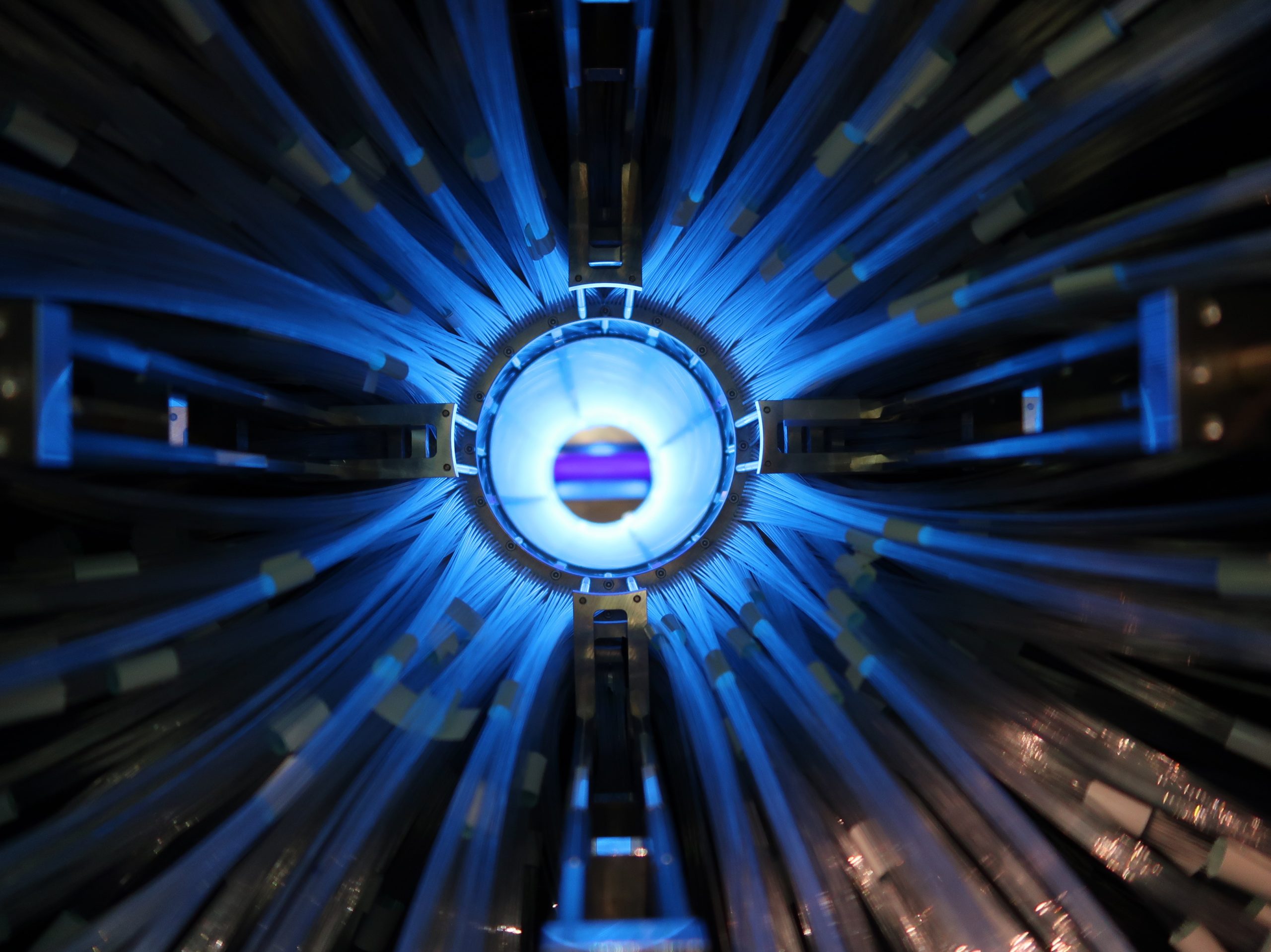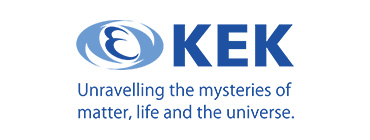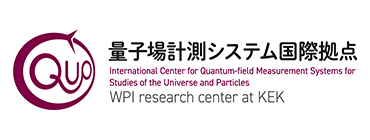- Topics
Three IPNS Members Receive Outstanding Achievement Award for HL-LHC Upgrade
July 10th, 2024
-
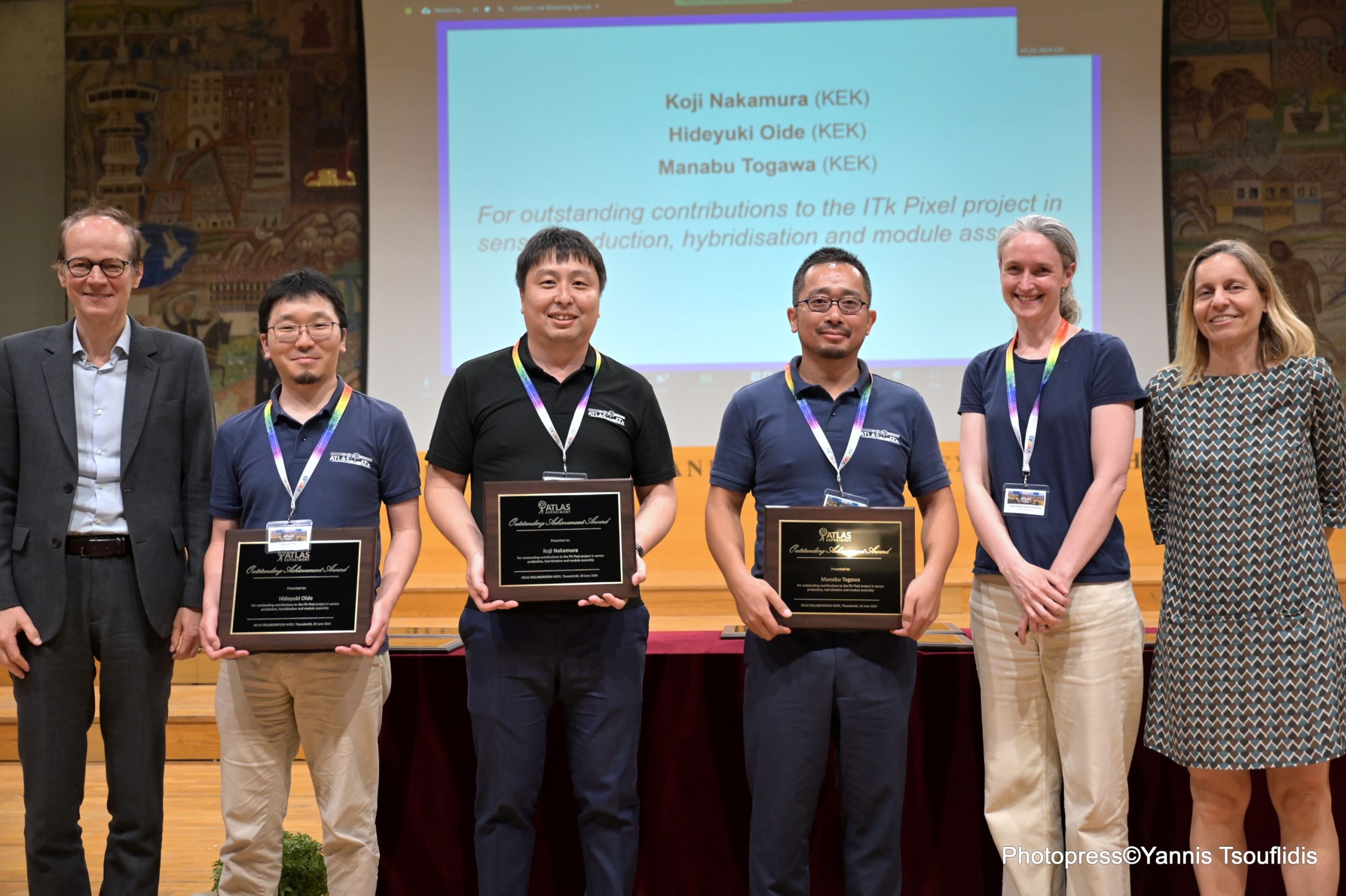
At the award ceremony. [From the left] Hideyuki Oide, Koji Nakamura and Manabu Togawa ©CERN
The 7th Outstanding Achievement Award ceremony was held on June 20th during the ATLAS Collaboration Week meeting in Thessaloniki, Greece. This award is presented biennially to recognize outstanding technical achievements across all fields of the ATLAS experiment. Nominations come from various activities such as technical coordination, detector systems, upgrades, combined performance, and outreach.
This time, notable contributions from the ATLAS Japan Group towards the silicon upgrade for the High-Luminosity LHC project were highly praised. Assistant Professor Koji Nakamura, Associate Professor Hideyuki Oide, and Associate Professor Manabu Togawa from the KEK-IPNS Energy Frontier Group received the award.
These three researchers have been involved in the ITk project, which aims to completely replace the inner tracking detectors for the high-luminosity LHC experiment, significantly increasing the proton-proton collision frequency. Their work includes the development of radiation-tolerant pixel sensors capable of long-term operation in harsh radiation environments, stable production of hybridization (electrical bonding of readout front-end ICs and sensors at each pixel level), and the assembly of pixel modules with flexible printed circuits for communication and power supply. They have also been establishing a domestic production and inspection system. Approximately 50 researchers and graduate students from the ATLAS Japan Group are participating in the ITk Pixel project.
-
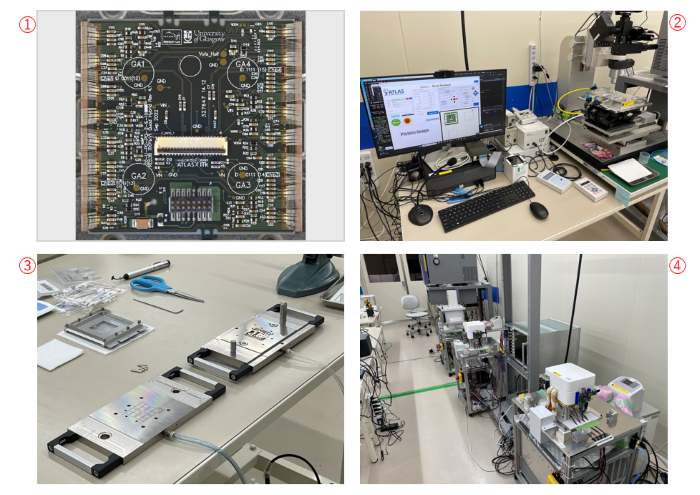
(1) Sample of pixel module (2) Visual inspection and measurement equipment developed by the EF group (3)(4) Jig for module assembly [left] and module testing system [right], developed mainly by EF group
Upon receiving the award, Associate Professor Oide commented: “With the deployment of ITk, we will be able to measure the trajectories of charged particle tracks with more than five times the accuracy of current capabilities. This will allow us to study in detail rare and interesting collision events, such as Higgs boson production, even in the harsh environment of the high-luminosity LHC, where we expect an average of 200 proton-proton collisions every time the proton beam bunches cross. This will lead to more precise determination of Higgs boson properties and potentially uncover new particles that were previously difficult to produce or detect. To achieve this, it is essential to have a global cooperation to produce approximately 10,000 pixel modules on an unprecedented scale. Although this is the first time the Japan group has undertaken full-scale mass production of pixel detectors, we have been able to establish a production and inspection system recognized by the entire ATLAS experiment, thanks largely to the cooperation of various companies that have faced challenging conditions and development issues with sincerity. Mass production will begin in earnest this fiscal year, and we intend to proceed with even greater diligence towards the completion of the detectors.”
See the original article on the 2024 Awards:
Celebrating excellence at the 7th ATLAS Outstanding Achievement Awards
https://atlas.cern/Updates/News/Outstanding-Achievement-2024

